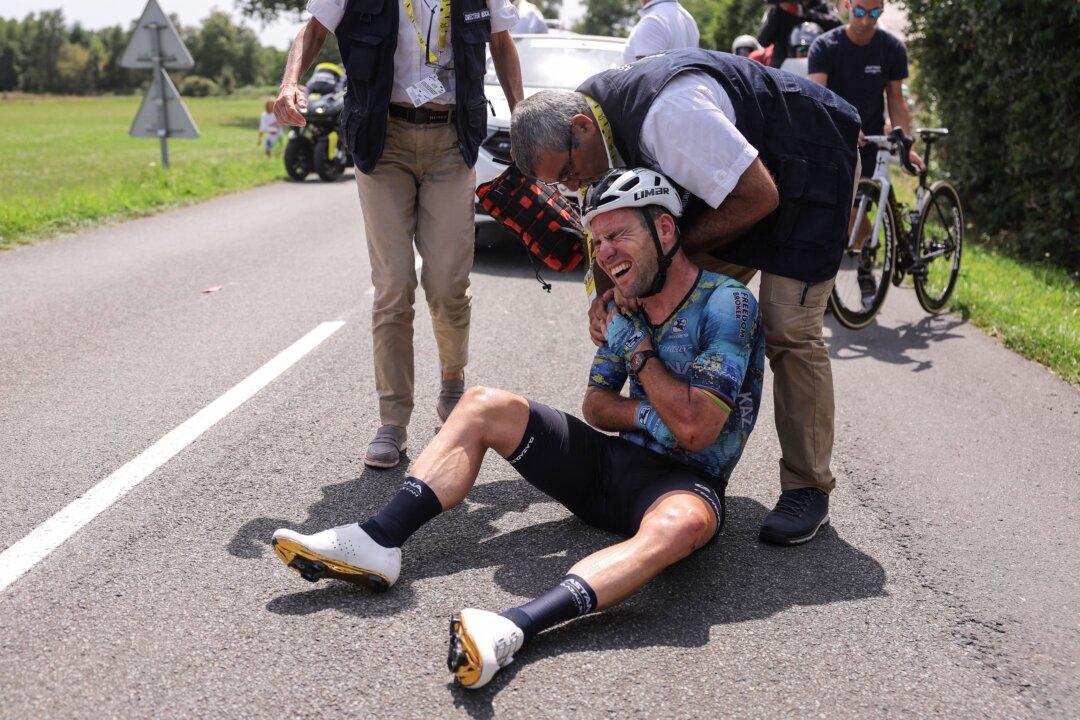LIBOURNE, France—Mark Cavendish’s hopes of breaking the record for stage wins at the Tour de France ended in cruel fashion on Saturday when the Briton crashed out of this year’s race, which he has long said will be his last, and broke his collarbone.
The 38-year-old, who will retire at the end of the year, fell off his bike with 64 kilometers left in the eighth stage won by Dane Mads Pedersen, and was taken into an ambulance for checks before his withdrawal was made official by race organizers.





